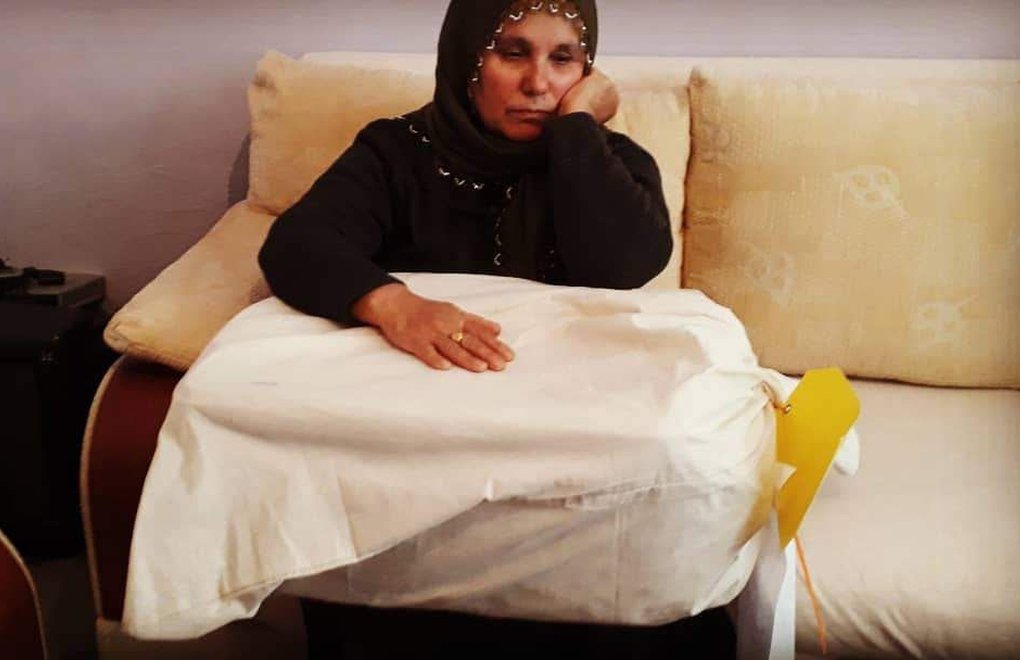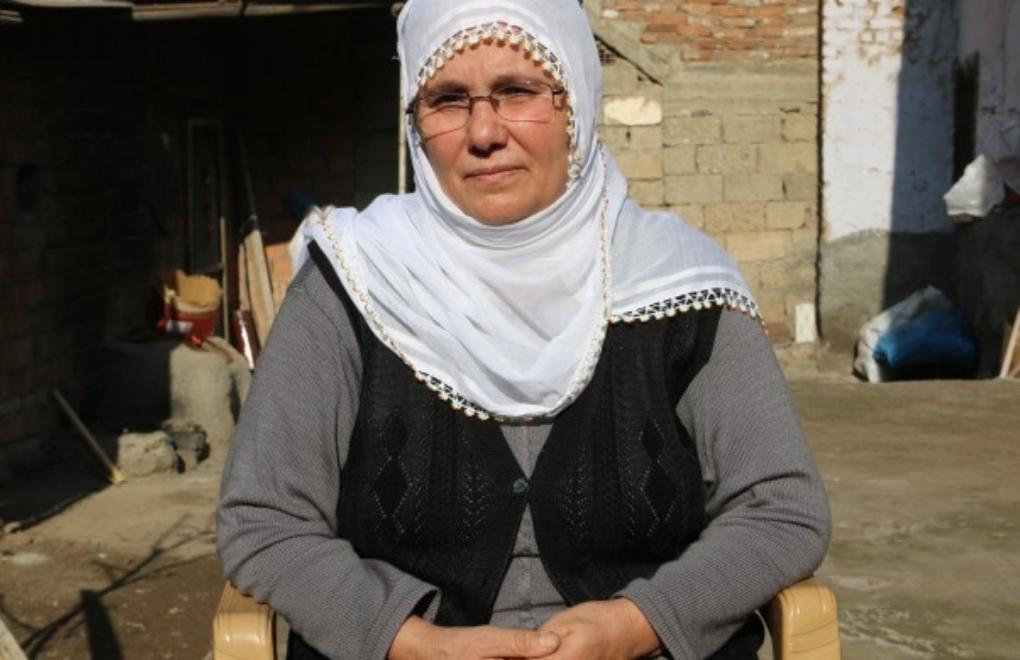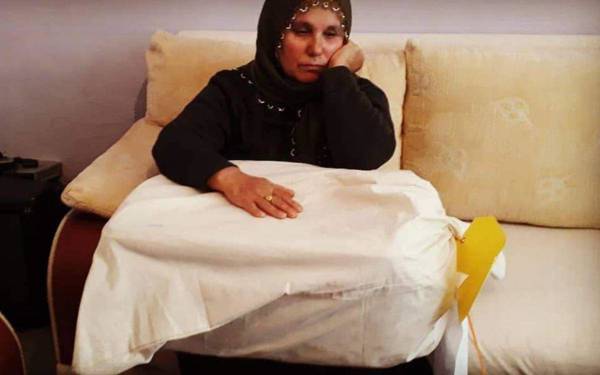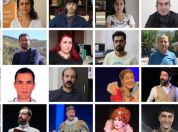Photo: MA
Click to read the article in Turkish / Kurdish
Many people have been taken into custody in the Diyarbakır-centered operation by the Diyarbakır Chief Prosecutor's Office carried out in 21 provinces, and 51 among them were arrested as of last week, mostly with charges of "membership to a terrorist organization."
Halise Aksoy is among the fifty-one arrested. Aksoy is the mother to whom the bones of her son were submitted three years later and in a box.
In the last operation Halise Aksoy, her daughter Mizgin Karataş, her four-year-old grandson, and her son-in-law Harun Karataş had been taken into custody.
Aksoy's grandson was released and handed over to a relative while she and her daughter Mizgin were arrested. Aksoy's son-in-law was released on bail.
We will not surrender
Aksoy sent a message via her son-in-law Harun Karataş. Karataş said, "Halise mother says we should not surrender to them. She says she similarly resist in prison. This is a message for all of us. We have seen everything and we know all in this struggle. We have not surrendered and we will not."
What happened?

Halise Aksoy's son Agit İpek lost his life in an armed conflict in Dersim in 2017. His bones were given to his mother on April 10, 2020, in a box.
Aksoy told what she went through in the "Experiences and Testimonies: Families are talking about the violence towards their dead" panel meeting on April 25, 2022.
"We all suffered in similar ways. I share the pain of all of you. On May 23 when I heard the news of the death of Agit, I set off. The authorities told me "We do not have any such thing, go and ask the organization." They were angry and asked us "Who told you?"
"We told them that we heard from the television and the newspapers. I had the newspaper with me when I went there. They told me that there had been an armed conflict but that they had no dead bodies, they sent us back."
"We went there for the second and third times. We told them that we wanted to give our DNA sample, in case any dead body arrives. They did not accept, they said, "Go and ask the organization," and they sent us back again. On my third time, I told them that I wanted to give my blood sample. I told them, "You are telling me to go to the organization, but where will I find them?"
"..."
"...We went to the court once again two weeks later. There were two other people at the door this time, they did not give us so much trouble. But they told us, "it is forbidden," and "There is no one working inside." But we insisted that please they should let us in. Then they let us in."
"They instructed us to go to the "safekeeping" section. We went there, there was one woman and one man at the desk. There was nothing on the desk but the box, containing the bones of my son Agit was under the desk, next to their feet. They asked me if I had my identity card with me, and they took my identity card and then my signature. I said, "OK, I will give my signature, but what is in the box?" I asked.
"The bones of my son Agit arrived. The children next to me asked me where it was. They showed pointing with their fingers. I bent down and I saw the box below; but I told myself, "it cannot be this way, no person can do such a thing."
"The children who were with me asked again, where it was. They lifted the cardboard box up and put it on the desk. I was frozen, I stood stock-still. How can a person do this? Not a human, a human cannot do this. They may not have respect for us, but they should have respect for our dead, for our bones." (TY/PE)






